People living in rural and remote areas
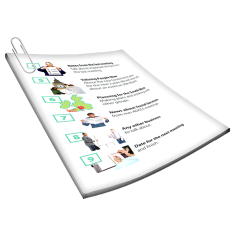
This information is about the mental health of people who live in rural and remote communities.
It has information on

- Key points for people who live in rural and remote communities

- Worries you might have when getting help for your mental health and what you can do
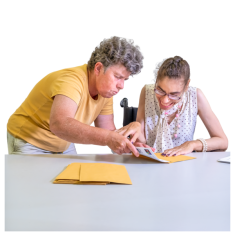
- Services and supports

People who live in rural and remote areas are sometimes called country communities.
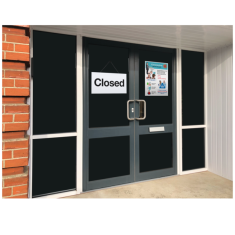
People who live in the country do not have as many services as people who live in city areas.
These services could be health or disability services.

For more information about finding different services and supports you might need go to https://www.idmhconnect.health/
i-am-person-ID/services-mental-health/mental-health-services/
services
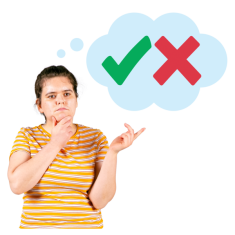
Not many services also means there are less choices.
This can make it hard to find services that know how to support people with intellectual disability who have a mental health problem.
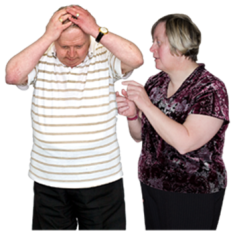
A mental health problem is when your feelings start to worry you.

For more information about what a mental health problem is go to
https://www.idmhconnect.health/about-mental-health-and-id/ER

People who live in country areas might need to
- Travel to the city to get the support that they need
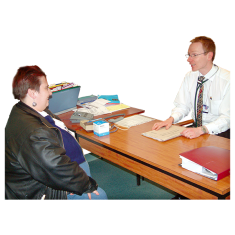
- Wait for a health worker to visit their area to get the support that they need
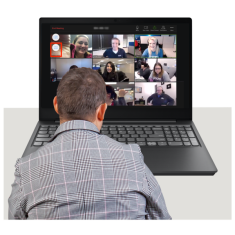
- Use teleconferencing to see a health worker
Teleconferencing allows you to see and communicate with people online.
You can use programs like Zoom to teleconference.
You might also hear people call this telehealth.

Below are some worries you might have when you try to get support for your mental health.

We have some ideas for what you can do.

Mental health is about
- How you think
- How you feel
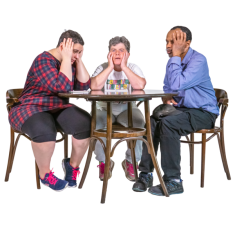
When there are no mental health services in your area
This is what you can do.
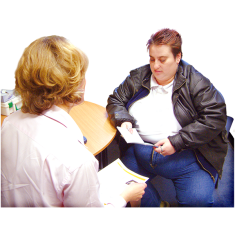
Specialist Intellectual Disability Health Teams can see people in country areas.

Specialists are people who know a lot about intellectual disability.

Mental health workers are people who work to help you with your mental health.
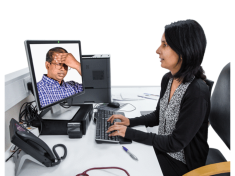
The mental health workers can have an appointment with you using teleconferencing.
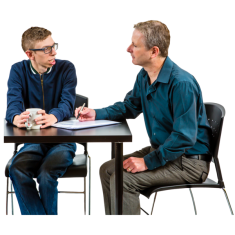
The mental health workers might also be able to come to your country area to see you.
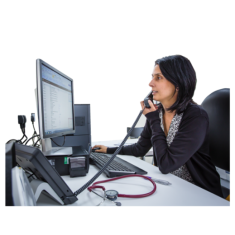
Ask your GP if a Specialist Intellectual Disability Health Team can support you.
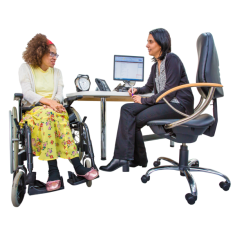
A GP is the doctor that you see when you
- Are sick
- Need a health check

For more information about specialist services go to
https://idmhconnect.health/mental-health-services-services/ER
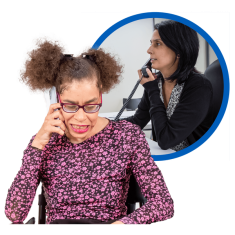
When services say they cannot help you
This is what you can do.

Ask the mental health worker to give you the details of another mental health worker in your local area.

You can let the mental health worker know about Specialist Intellectual Disability Health Teams.

They can help your GP to learn about working with people with intellectual disability.

You can give the mental health worker a list of people who can help them.
We have made a list for you to share with the mental health worker.

You can find this list here https://idmhconnect.health/specialist-intellectual-disability-services
Ask the mental health worker to give you information about things that can help your mental health.
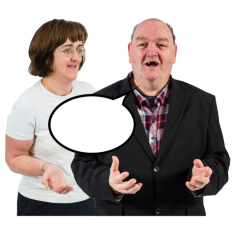
Advocate for yourself to get the help that you need.

To advocate is you or someone else doing things so that your rights and needs are met.
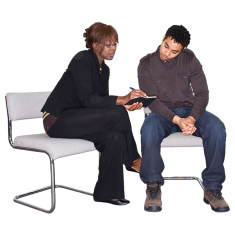
Someone you trust can advocate for you too.
There are many people you might trust.
For more information about who you might trust go to
Rights are rules about how everybody should be treated fairly.
A right is something everyone has.

For more information about how you can advocate for yourself or find an advocate go to https://www.idmhconnect.health/about-advocacy/ER

If you have to travel a long way to use a service
This is what you can do.

You can ask the service or mental health worker if you can have your appointment using teleconferencing.

You can ask someone you trust to support you to have your appointment using teleconferencing.
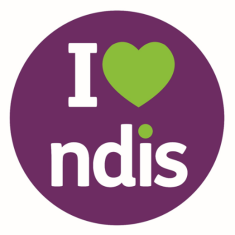
If you do not have a phone or computer you can ask your NDIS support coordinator to support you to apply for one.
NDIS is short for National Disability Insurance Scheme.
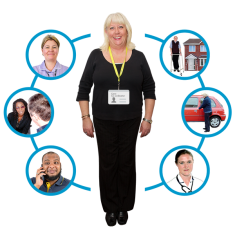
A support coordinator is a person who helps plan and organise
- Your care
- Other services you get
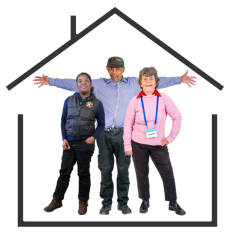
You can ask if the mental health worker can do a home visit.
A home visit is when mental health workers visit people in their homes.
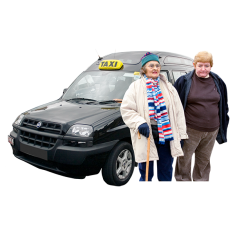
You can ask your carers or support workers to help you arrange transport.

Your carers and support workers can also help you make a plan for how to get to the service.

If you have a NDIS plan you might be able to use your funds to help you get transport to appointments.
Ask your support worker or coordinator for more information.

Below is a list of services and supports to support people who live in rural and remote communities.

Specialist Intellectual Disability Health Teams can see people in country areas.

For more information about specialist services go to
https://idmhconnect.health/mental-health-services-services/ER
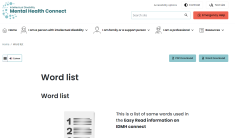
There are some tricky words on this Easy Read page.
For more information about these words go to